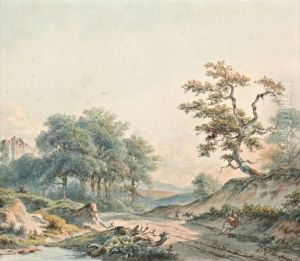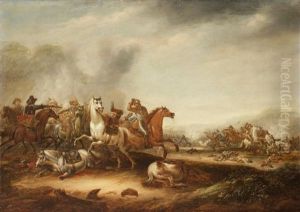Jan Karel Jacob De Jonge Paintings
Jan Karel Jacob de Jonge was a Dutch historian and archivist, rather than a widely recognized artist in the traditional sense of painting or sculpture. He was born on September 9, 1828, in The Hague, Netherlands. Not much is widely known about his personal life in terms of family and early education, but he emerged as a significant figure in the historiography of the Netherlands, particularly in the archival and administrative aspects of history.
De Jonge’s career was largely academic and bureaucratic. He made substantial contributions to the study of Dutch history through his work in archives and his scholarly activities. His commitment to historical research is evidenced by his detailed studies of Dutch maritime history, which were considered valuable contributions to the field. De Jonge's work was characterized by meticulous research and a dedication to preserving and understanding historical documents.
In the realm of public service, De Jonge served as the director of the Royal Archives in The Hague from 1869 until his death. This role underscored his expertise in managing and organizing historical documents, and he became an important figure in the development of archiving practices in the Netherlands.
Jan Karel Jacob de Jonge passed away on June 15, 1880, in The Hague. Although his name may not be instantly recognizable in the broader spectrum of the arts, his legacy lives on through his contributions to the preservation and interpretation of Dutch history. His work helped to establish frameworks for understanding the administrative and maritime history of the Netherlands, which continue to be valuable resources for historians today.

